“Quranic Stories” is a new and scientific analysis of the stories of the prophets. In Part Two, the author continues the path of prophethood to see how the sciences and knowledge of prophecy accumulated, how humans discovered fire and burying the dead, how they learned, at the hands of Noah, how to cross water barriers, at the hands of Shu’aib, how to fulfill the obligation of measuring and weighing, and at the hands of Joseph how to store the harvest of bounty seasons for days of famine. He continues the path of the messages to see how religious laws diversified and evolved from strict religious laws to strict religious laws, with a clear tendency toward facilitation and mitigation; and how rituals differed in form and devotion. Fasting, which began as abstaining from speech altogether, later became abstaining from food, drink, and contact with women, as well as avoiding obscene and vulgar language. Prayer, which began as supplication and remembrance, then took on a ritual form, including standing, sitting, bowing, and prostrating, requiring humility.
Quranic Stories A Contemporary Reading Part Two From Noah to Joseph
د.ا11.00
A contemporary analytical reading of the stories of the prophets from Noah to Joseph, linking the Qur’anic text to the historical and intellectual context.
Available on backorder
| Categories: | stories, Religions, Islamic Curricula |
|---|---|
| Tags: | Islam, Islamic Studies, Qur’an, thought |
| Author | |
|---|---|
| Year | |
| Publisher | Dar Al Saqi |
You may also like…
-
Tigers on the Tenth Day
د.ا5.00A collection of symbolic stories that addresses oppression and freedom through a sarcastic style and intense language.
-
Spring in Ashes
د.ا5.00In “Spring in Ashes,” Zakaria Tamer presents satirical short stories that reveal the contradictions of Arab reality and the cruelty of power.
-
Quranic Stories An Introduction to the Stories and the Story of Adam Part One
د.ا15.00The book addresses a contemporary reading of the Quranic stories through the story of Adam to understand the intellectual and religious structure of the Quranic text.
-
Sea Prayer
د.ا12.00Sea Prayer is a poignant and poetic reflection on the suffering of refugees, told as a letter from a Syrian father to his lost child.
Related products
-
My journey from doubt to faith
د.ا2.13I refused to worship God because I was immersed in worshipping myself and admired the flash of light that began to flash in my mind with the opening of consciousness and the beginning of the awakening from the cradle of childhood.
This psychological state was behind the controversial scene that recurs every day. I also missed the origins of logic and I am dealing with logic and I did not realize that I am contradicting myself as I recognize the Creator and then say who created the Creator and make him a creature at the time when I call him a creator, which is sophistry itself.
Moreover, to say a first cause of existence requires that this cause must exist in itself and not dependent or need others to exist. If a cause needs a cause, this makes it one of the causal links and does not make it a first cause.د.ا3.55 -
A tear and a smile
د.ا4.12Gibran’s literary style was characterized by smooth words, simplicity of expression, the use of all linguistic formulas and styles, and the frequent use of metaphors and figures of speech. Perhaps the most important feature of Gibran’s literary works is creativity in the art of photography. We find many beautiful, imaginative artistic images full of deep meanings and expressions covering his literary works; because he was an artist and painter who initially depicted the idea and then created it. Gibran relied on two styles in his literary works: the first is characterized by strength and revolution against beliefs and customs and the call for freedom, and the second is characterized by the love of enjoying life and the call to follow inclinations
د.ا4.97 -
A conversation with an atheist friend
د.ا2.13Interview with my atheist friend A book written by the philosopher and doctor Mustafa Mahmoud, published in 1986, in which he responds to questions by atheists about the Islamic religion, and about material questions that the human mind may ask at some point
د.ا4.26 -
Dreams
د.ا2.13The Book of Dreams is one of the most famous books of Dr. Mustafa Mahmoud. It is an interesting and interesting book, which began with dreams and their interpretation from a purely philosophical point of view, with a scientific presentation characterized by ease, mastery and high quality.
د.ا3.55 -
Anichatin and relativity
د.ا2.13In this book, its author, Dr. Mustafa Mahmoud, tries in his style known as ease and extreme logic in understanding the theory of relativity of the physicist Albert Einstein so that it suits the understanding and perception of the general public, and in a strong objection to limiting information to a few scientists under the pretext of depth and specialization, which may lead to the isolation of science, supporting in his book what Einstein himself called for to spread science among people, Einstein hated scientific fortune-telling and fabrication of mystery, claim, and magnification, and he used to say that the truth Never mind.
د.ا4.26 -
God and man
د.ا2.84God and Man is a book featuring a collection of essays by the Egyptian writer Mustafa Mahmoud published by Dar Al-Maaref in 1955. The book of God and Man is a great controversy and has been banned from circulation in Egyptian libraries and still does. Mustafa Mahmoud was accused of atheism because of him, which the writer later denied, while admitting that he could not realize the truth of faith before, as he was on a journey in search of God, which he began by studying the different religions through the three monotheistic religions, and Islam was the last of them. The writer expressed this truth in his book «My Journey from Doubt to Faith» and said that he never denied the existence of the divine self, but he could not imagine its truth until after a strenuous journey of research that took thirty years of the realization of thought, reconsideration, and then reconsider the reconsideration, and said critically to himself, that if he heard the voice of instinct Joan, but perhaps he rea
د.ا4.26 -
Being and nothingness
د.ا2.13The Book of Being and Nothingness is a book written by Dr. Mustafa Mahmoud in which he talks about that all causes belong to God. He owns it. He is the one who brings it, he is the one who drives it, and he is the one who harnesses it. He is the one who established the law of causation
Reasons do not harm themselves and do not benefit themselves. But it is in all cases a manifestation of His will that harms His ear and benefits His permission. And if he wishes, he will cause damage to it or without it. And if he wishes, he will stop it from doing as he stopped the fire from burning Abraham – peace be upon him
There is always wisdom behind prevention, giving, guidance, and delusion. God’s will and guidance are always based on decency and readiness in the servant. The slave has the initiatives, the clearance of intention and the orientation that nominates him for giving or deprivation. God’s giving is conditional. Also, deprivation is reasoned and not coercive, coercive and arbitrary.
د.ا4.26 -
Letting go; the road to delivery
د.ا8.52The book explores how to release negative emotions and surrender to the present moment to achieve inner peace
د.ا9.94

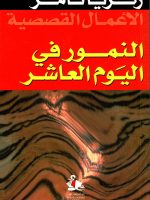
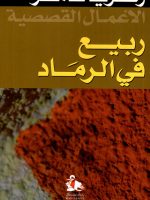
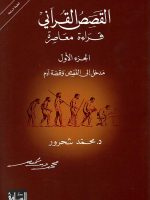
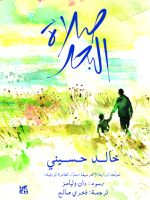
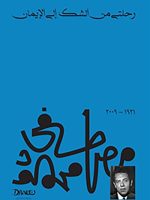
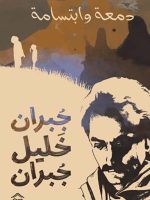
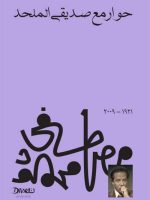
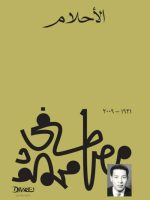
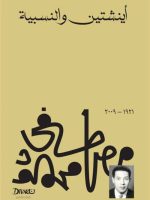
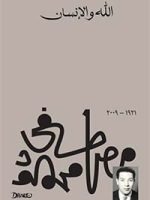
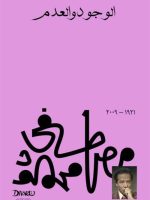
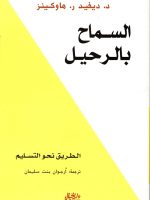
Be the first to review “Quranic Stories A Contemporary Reading Part Two From Noah to Joseph”